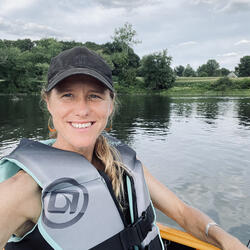Emily Vogler

Emily Vogler is a landscape architect whose research, design and teaching investigate social-ecological systems surrounding water infrastructure, sense of place and climate uncertainty. She has ongoing research projects looking at the irrigation ditches in New Mexico, aging dam infrastructure in New England and coastal adaptation strategies in Narragansett Bay.
In her research and design practice, Vogler investigates methods to address regional environmental and cultural issues at the site and material scale; novel approaches to engaging the public in the design and decision-making process; and strategies for strengthening the collaboration and communication between designers, artists and scientists.
Vogler served as Landscape Architecture department head at RISD from 2017–19. Prior to teaching at RISD, she was a senior project manager at Michael Van Valkenburgh Associates and the 2010 National Olmsted Scholar.